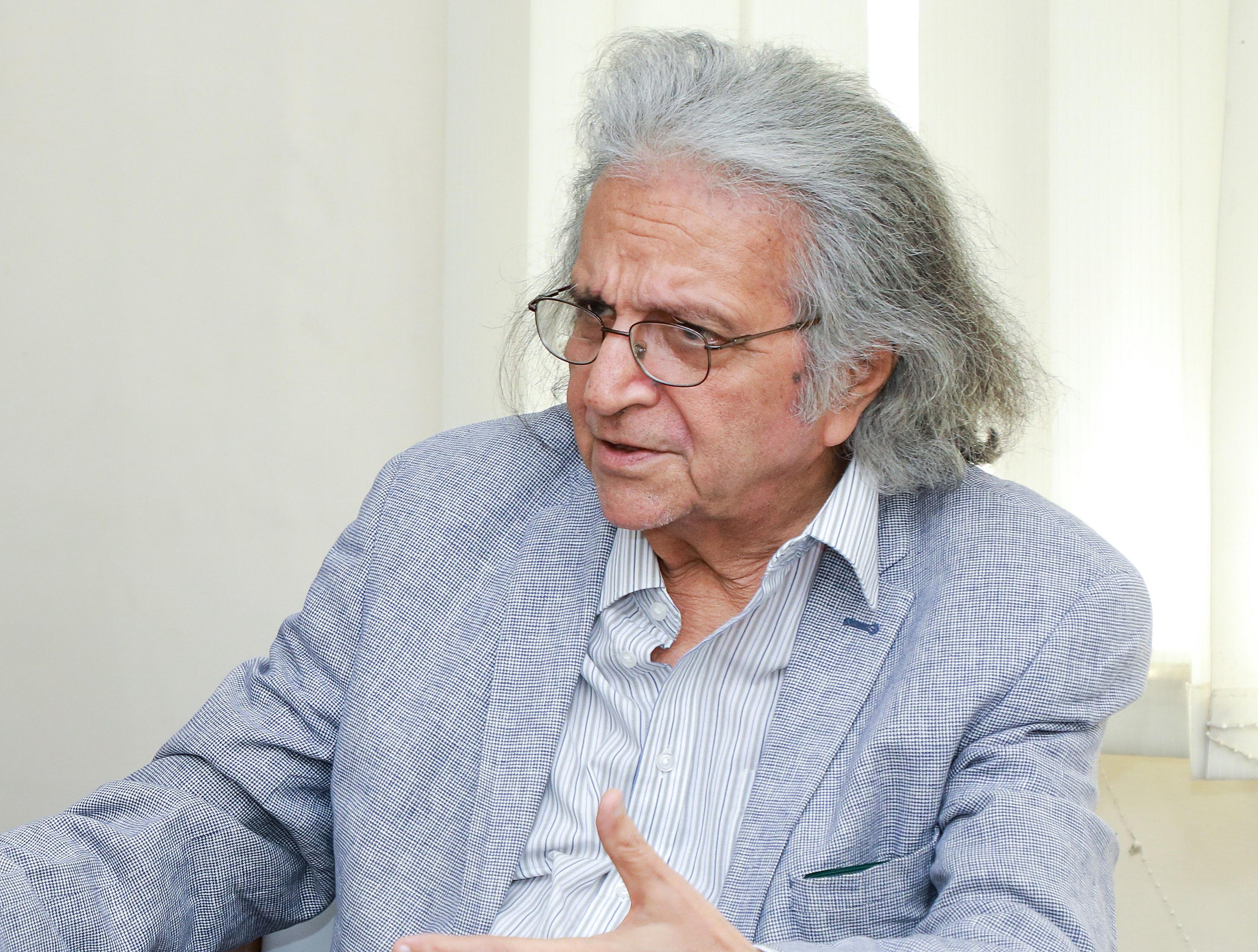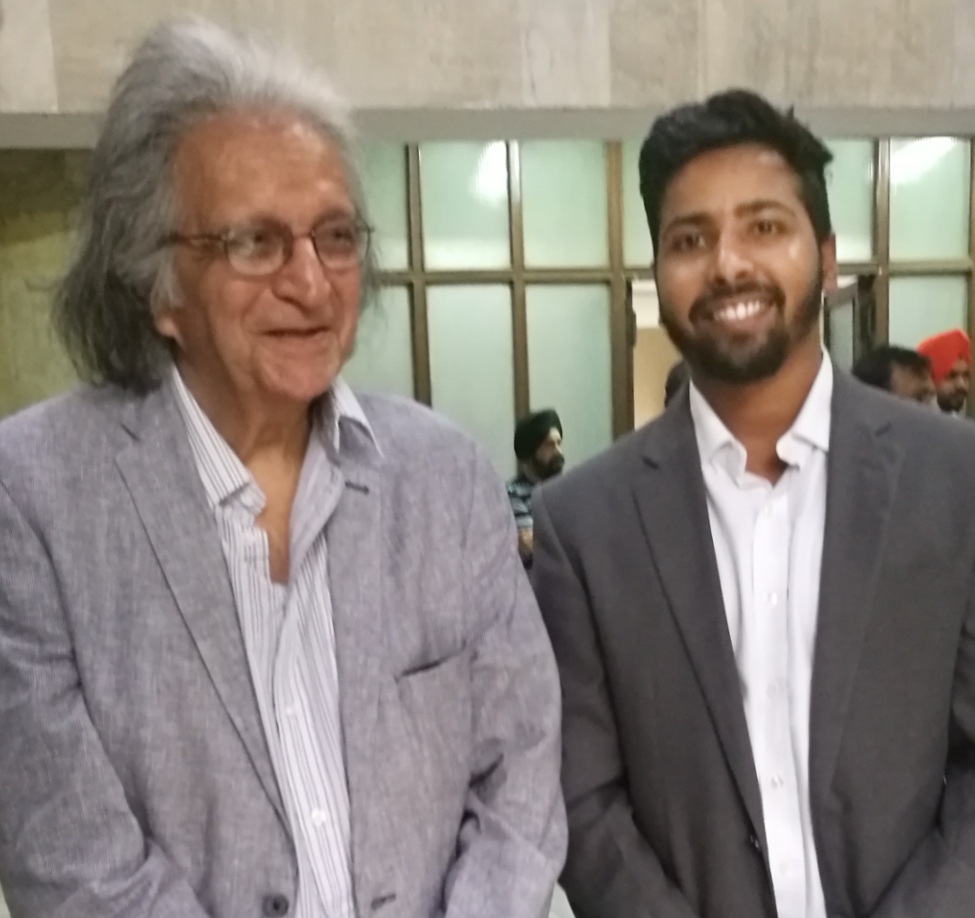Democratic Constitutionalism in Crisis – Prof. (Dr.) Upendra Baxi
This article is a transcript of the conversation with the Legendary Scholar – Prof. (Dr.) Upendra Baxi. Mayank Shekhar, Director, Legal Bites – recently attended a discussion on Democratic Constitutionalism in Crisis at Indian Law Institute, New Delhi, where he had a brief conversation with this Prof. (Dr.) Upendra Baxi. Professor (Dr.) Upendra Baxi, born at Rajkot, Saurashtra, graduated… Read More »

This article is a transcript of the conversation with the Legendary Scholar – Prof. (Dr.) Upendra Baxi. Mayank Shekhar, Director, Legal Bites – recently attended a discussion on Democratic Constitutionalism in Crisis at Indian Law Institute, New Delhi, where he had a brief conversation with this Prof. (Dr.) Upendra Baxi.
Professor (Dr.) Upendra Baxi, born at Rajkot, Saurashtra, graduated from Rajkot (Gujarat University), read law at the University of Bombay, and holds LLM degrees from that University and the University of California at Berkeley, which in 1973 also awarded him a Doctorate in Juristic Sciences. For his contribution to legal and political affairs, he was awarded the third highest civic Honour – a Padma Shri—by the President of India in 2011.
Professor Baxi’s writings have been cited by Indian High Courts and the Indian Supreme Court as well as by appellate justices in South Asia. In one instance, the International Court of Justice cited his work as a persuasive authority concerning state succession to treaties.
Professor Baxi has been awarded Honorary Doctorates in Law by the National Law School University of India, Bangalore and the University of La Trobe, Melbourne. The Indian Lawyers’ Association and the Indian Society of International Law, recently honoured him with a lifetime achievement award; the first award was alongside Justice Krishna Iyer. Two festschrifts (books of essays in his honour) have been recently published, and several books have been dedicated to him.
His leading publications (besides more than 250 articles in learned journals and edited books) include The Indian Supreme Court and Politics (1980); The Crisis of the Indian Legal System (1982); Courage, Craft and Contention: The Indian Supreme Court in Mid-Eighties (1985); Towards a Sociology of Indian Law (1986); Liberty and Corruption: The Antulay Case and Beyond (1990); Marx, Law, and Justice: Indian Perspectives (1993); Inhuman Wrongs and Human Rights (1994); Mambrino’s Helmet?: Human Rights for a Changing World (1994) Mass Torts, Multinational Enterprise Liability and Private International Law (2000); The Future of Human Rights (2008, 3rd edition; reprinted Perennial Book Series, 2013) and Human Rights in a Posthuman World: Critical Essays (2007.) He has been Director’s Guest Fellow at the Nantes University Institute of Advance.
Recently, Mayank Shekhar, CEO Legal Bites attended a discussion on Democratic Constitutionalism in Crisis where he had a brief conversation with this legend. Here’s the compilation of the same:-
Sir, how do you react to the Justices airing their grievances in public and Senior Supreme Court Judges giving a media interview?
Prof. Upendra Baxi: This raises two questions. One is the question of Article 19 and whether justices have freedom of speech to talk about administrative matters. About judicial matters, they are free to write whatever they want in the judgment. In case of police, army, and civil service you surrender this right completely.
The propriety issues are better reflected upon when the justices are off the bench. All four senior-most justices have long judicial experience. Perhaps, justices should not go public in case of administrative matters – though I don’t know what were the exact circumstances that provoked them to do so.
The point is very simple. If there are differences, the best way is to sort it out internally. The foundation of judicial review is people and not the constitution. Now the people send their representatives and say that they are their voice. Justices, however, do not contest elections, nor are they popularly elected; yet they are the ‘oracles of law’.
For a long time, common law justices in England have justified judicial review as a way of honouring the trust people have in the judiciary. After the Kesavananda Bharati judgment, our justices have talked about people, and have also spoken about people’s rights and welfare. This is what I call ‘demosprudence’. They assume demosprudential leadership. They co-govern the nation. They don’t just settle disputes.

Recent developments have given enough scope for the opposition parties to go to an extent that they can lead an impeachment proceeding against the CJI. Don’t you think this has done great harm to the institution?
Prof. Upendra Baxi: The constitution vests the power of removal of justices in parliament and stipulates the grounds of ‘proven misbehaviour’ or ‘incapacity’. At all times, removal is a serious matter and may not be cavalierly made or pursued. The chairman of Rajya Sabha has now ruled not to admit the motion; mainly on the ground that it does not disclose, prima facie, the kinds of misconduct for which removal is prescribed as a remedy. On behalf of the seven opposition parties, it is now said that this ruling is itself arbitrary and unconstitutional and they intend to contest it in the Supreme Court.
The removal motion was uncalled for. Where does the question of removal arise? The charges at best relate to the abuse of power to constitute benches but the rules and decisions (also the traditions) confer autonomy to the court to decide such matters. Just as the court may not go into matters of the procedure followed in either of the houses, parliament should not intervene in the bench formation or other internal judicial procedures. On other related charges, even if the motion was admitted by the chairman of Rajya Sabha, it would be infructuous as the CJI retires on October 2, 2018, by which time the process of inquiry cannot come to a close. Removal proceedings should not be availed of as a political embarrassment.
But I will add an additional remark that in the last ten years a system of ‘sealed envelopes’ has developed. We don’t know as citizens what is in those sealed envelopes. Jeremy Bentham, the English philosopher, jurist, and founder of modern utilitarianism, said in the 18th century that “publicity is the best disinfectant.” Therefore, the administration of justice should be in public. That is the cardinal principle of the rule of law. And the jurisprudence of ‘sealed envelopes’ withdraws from the public information which is rightfully theirs.
Be it inquiry commissions or CBI, everyone is giving sealed envelopes. You never get to know what is in the sealed envelope. That is not justice in my view. Justice is done in broad daylight. A new jurisprudence of secrecy is being evolved. It is unconstitutional and should end.
You write that “there is no more demanding virtue than transparency.” Do you think that the higher judiciary has done enough to ensure this?
Prof. Baxi: I think appointment and disappointment go together. For every appointment you make there are many qualified people who are disqualified. What you can do is to ensure is that the proper procedure is followed.
However, there have been numerous instances, for example, the Punjab and Haryana High Court suggested names which were not qualified and it was only after protests that they were rejected by the Supreme Court Collegium. What is the way out?
Prof. Upendra Baxi: The answer is simple. To bring out a better judicial appointment commission. I don’t know why after NJAC was struck down there was no initiative to devise a new way of appointment. The NJAC decision was not a full stop to an attempt to devise a new method of appointment. The court only said that it [the NJAC Act] was against the constitution because it did not permit the supremacy of the executive in judicial appointments. The bench said that parliament is free to amend the constitution and bring in a new bill.
My question is why the executive did not take the initiative to devise a proper system that was acceptable to all. Nothing in the judgment prevents the executive from doing so. A new constitutional amendment and a bill for a judicial commission can be drafted/created which will seek to replace the collegium but take care that the primacy of the judiciary is maintained and that the executive does not have any veto power.
When the higher judiciary says that you have to stand up for the national anthem, do you feel it overstepping its jurisdiction?
Prof. Upendra Baxi: I, like every constitutionally sincere Indian, believe in respecting the national anthem. But if the court creates a new crime by a judicial decision, I oppose it. The court cannot, the court should not create new crimes and punishments: that is strictly the job of legislatures (what I call ‘legisprudence’).
How will you describe this constitutional crisis?
Prof. Upendra Baxi: In a sentence, I would say that we are in an unparalleled constitutional crisis.

